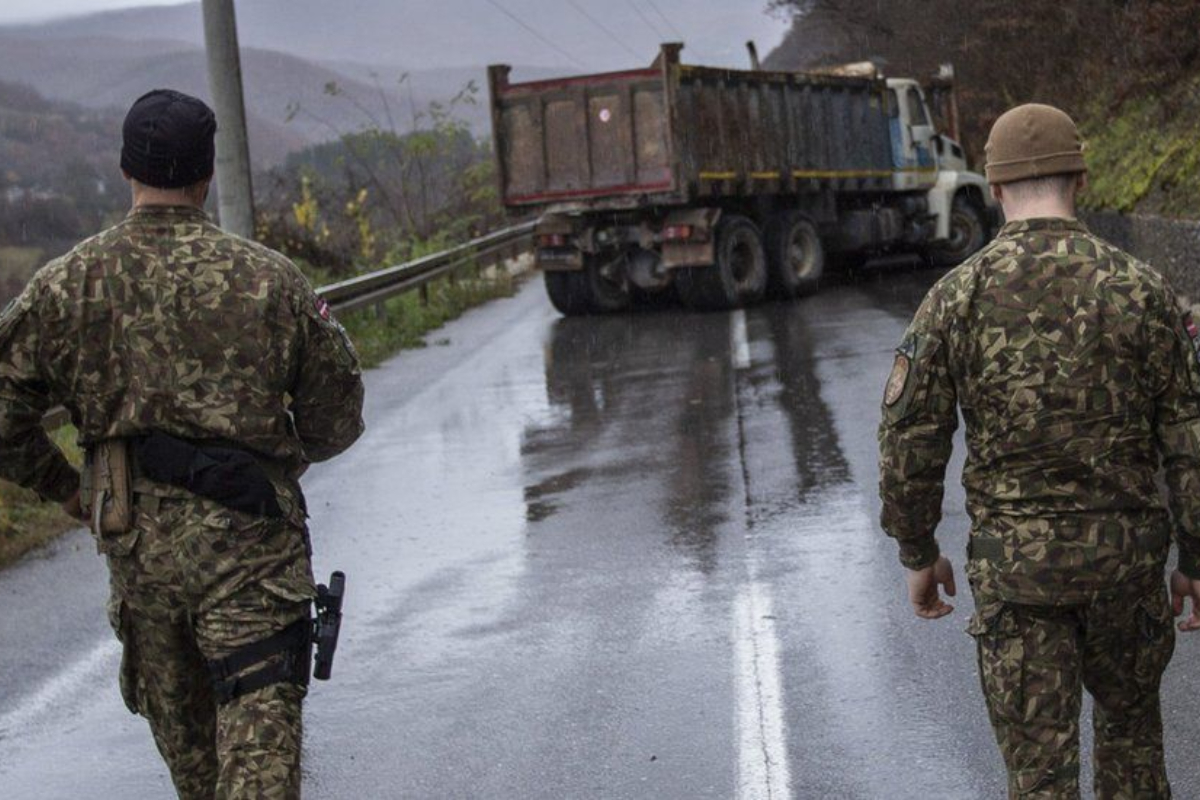Serbia: Vucic asks NATO to send troops to north Kosovo
Serbia will ask NATO forces to let it send military. However, it...

Kosovo roads blocked by Serb protestors and police
Following a firefight with police, Serb demonstrators in northern Kosovo blocked roads for a second day on Sunday.
Several major roads leading to two border crossings with Serbia were blocked by trucks and other large vehicles.
Tensions between the government and Kosovo’s Serb minority have been building for some time now.
The arrest of a former Serb police officer on Saturday started the most recent demonstrations.
Albin Kurti, the prime minister, called the demonstrators “criminal gangs” and asked the KFOR, the Nato-led peacekeeping force in Kosovo, to take down the barriers.
The EU demanded that peace be restored after one of its armored vehicles that was out on patrol in northern Kosovo on Saturday night was struck by a stun grenade.
Late on Saturday, Kosovo police claimed they came under fire in several areas near to a lake that borders Serbia, and that the officers retaliated by firing in self-defense.
It happens after Kosovo sent police to Serb-majority areas at the end of last week. These regions do not recognize the Pristina-based administration of Kosovo.
After being raised for months over a dispute involving license plates for vehicles, this served to further exacerbate tensions.
The employment of police, according to Serbia, is a violation of earlier peace accords. Although he conceded there was little possibility of success, President Aleksandar Vucic said he intended to petition Nato peacekeepers for permission to send Serbian police and troops to the region.
In 2008, Kosovo proclaimed its independence from Serbia after a violent year-long conflict a decade earlier.
In accordance with a 2013 agreement to normalize relations, Serbia accepts the governmental authority even if it does not recognize it as a sovereign state.
Kosovo has 1.8 million residents, 92% of whom are Albanian, and only 6% are Serbian.
The police officer detained on Saturday was among 600 ethnic Serbs who quit the force in protest in November when Kosovo officials said they would ask Serbs to exchange their old license plates from the 1998–1999 war for Kosovan ones.
Because they do not recognize Kosovo’s independence from Serbia, about 50,000 persons in places with a majority of Serbs have so far refrained from using Kosovo number plates.
In a compromise mediated by the EU at the end of November, Serbia and Kosovo agreed to stop issuing registrations bearing the initials of Kosovo cities and Kosovo dropped plans to penalize anyone who did not switch their license plates.
Catch all the Business News, Breaking News Event and Latest News Updates on The BOL News
Download The BOL News App to get the Daily News Update & Live News.